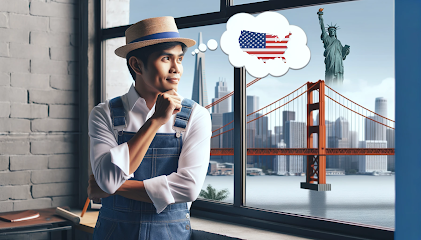The Dangers of Political Fandom: Why Blind Loyalty Leads to Perpetual Misery in the Philippines
"Di ko na maalala, your honor"—Alice Guo kept saying these words over and over again during the Senate hearing about her supposed connections to POGOs, and it's a scary reminder of how blindly we trust. As suspicions of her true identity and allegiance swirled, President Bongbong Marcos himself questioned her background, yet a wave of unwavering support for Marcos quickly followed. One netizen's declaration, "I will trust what MY president said," sent shivers down my spine. This blind faith in political figures, this unquestioning loyalty even in the face of glaring red flags, is a festering wound on our nation's soul. It is the Achilles' heel that keeps us shackled to a cycle of misery, hindering progress and perpetuating the very problems we so desperately yearn to escape.
This blog is not about Alice Guo or Bongbong Marcos; it's about the dangerous allure of political fandom and how it blinds us to the truth. It's about the urgency of breaking free from this toxic pattern of blind trust, of learning to question, to think critically, and to hold our leaders accountable. For it is only when we open our eyes and demand better that we can hope to forge a path towards a brighter future for the Philippines.
The roots of this blind trust run deep, entwined with our colonial history and cultural norms. For centuries, Filipinos were conditioned to obey and defer to authority, first under Spanish and then American rule. This legacy of subservience, coupled with cultural values like "hiya" (shame) and "pakikisama" (fitting in), created an environment where questioning authority was discouraged, if not outright taboo.
This historical conditioning, combined with the nation's fragmented geography – a sprawling archipelago of over 7,000 islands – has made the Philippines fertile ground for political division. Just as the nation is physically divided by its islands, so too is its populace divided by political allegiances. These divisions are often exploited by those in power, creating a landscape where "my president" is a rallying cry, not a statement of objective evaluation. It's been Marcos versus Aquino, then now, it's Marcos versus Duterte – a seemingly endless cycle of binary opposition that leaves little room for nuance or critical thinking.
In this climate, political fandom thrives. We elevate politicians to the status of idols, blindly accepting their every word as gospel truth. We defend their actions, no matter how questionable, and attack those who dare to criticize them. This unquestioning loyalty creates a dangerous echo chamber, where dissenting voices are silenced and critical thinking is stifled. Nowhere is this more evident than in the case of Alice Guo. Many, especially from her own constituents from Bamban, Tarlac met her repeated claims of amnesia with astonishing acceptance - "Ano naman kung hindi niya maalala? Marami naman siyang natutulungan dito?" This unwavering support, despite the glaring inconsistencies in her story, highlights the dangers of blind loyalty in a political landscape rife with division. The fact that President Marcos himself questioned her identity only adds another layer of intrigue to the situation. Yet, for some, Marcos' word is law, his denial of any association with Guo enough to quell any doubts. This blind faith in political figures, even when faced with mounting evidence to the contrary, is a recipe for disaster. It allows corruption to fester, incompetence to reign, and injustice to prevail.
It is important to note that political loyalty, in and of itself, is not inherently negative. A sense of belonging to a political movement or supporting a leader one believes in can foster community, encourage civic engagement, and even inspire positive change. However, when loyalty transforms into blind allegiance, when critical thinking is replaced by unwavering devotion, the potential for harm becomes immense. It is this uncritical acceptance, this refusal to question or challenge, that allows corruption to flourish, incompetence to go unchecked, and societal problems to fester.
The consequences of this blind trust extend far beyond individual cases like Alice Guo's. It permeates our political landscape, where politicians exploit our loyalty for personal gain, promising change while clinging to power and perpetuating the same corrupt systems that have held us back for decades. It festers in our social fabric, where misinformation spreads like wildfire, fueled by our reluctance to question authority and our tendency to simply believe what we are told. And it manifests in our economic struggles, where we remain trapped in a cycle of poverty and inequality, partly due to our blind faith in leaders who offer empty promises and prioritize personal enrichment over the welfare of the nation.
This blind trust is not merely a quirk of our national character; it is a significant barrier to progress. Rooted deeply in our history of colonialism and cultural norms like "hiya" (shame) and "pakikisama" (fitting in), this unyielding loyalty stifles critical thinking and silences dissent, creating a fertile ground for corruption and incompetence to thrive. The saga of Alice Guo, with her claims of amnesia and the president's ambiguous stance, exemplifies how blind allegiance can cloud judgment, allowing leaders to exploit our trust for their personal gain.
However, political loyalty can foster community and inspire civic engagement when balanced with critical thinking. To break free from the cycle of blind trust, we need to cultivate a culture where questioning authority is encouraged, and critical analysis is valued over unwavering devotion. This starts with education and media literacy, teaching our children and the general populace to discern fact from fiction and to demand transparency.
Moreover, active participation in our democracy is crucial. We must engage in civic discourse, hold our leaders accountable, and refuse to be mere spectators in our political landscape. By embracing informed skepticism and rejecting the notion that our role is to blindly trust, we empower ourselves to demand a better Philippines.
The choice is ours: continue down the path of complacency, or forge a new one illuminated by the light of critical thinking and active engagement. Let us choose to be the authors of our destiny, not just cheerleaders of our leaders. Will you answer the call to action and demand a more accountable, transparent, and effective government? The time for change is now.

.png)


Comments
Post a Comment